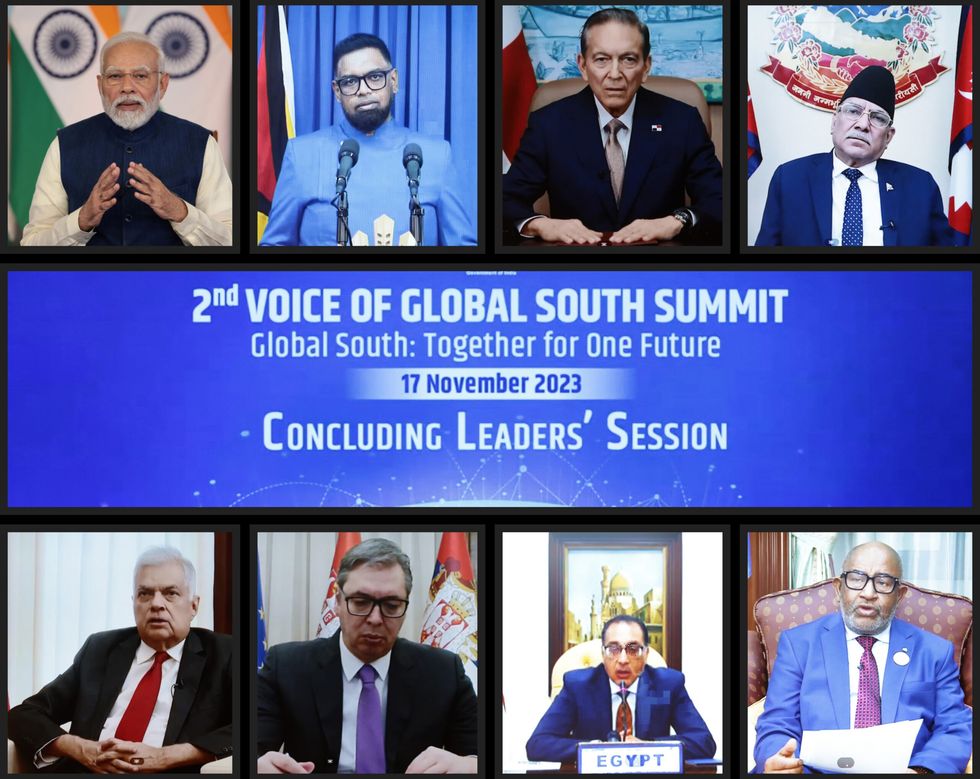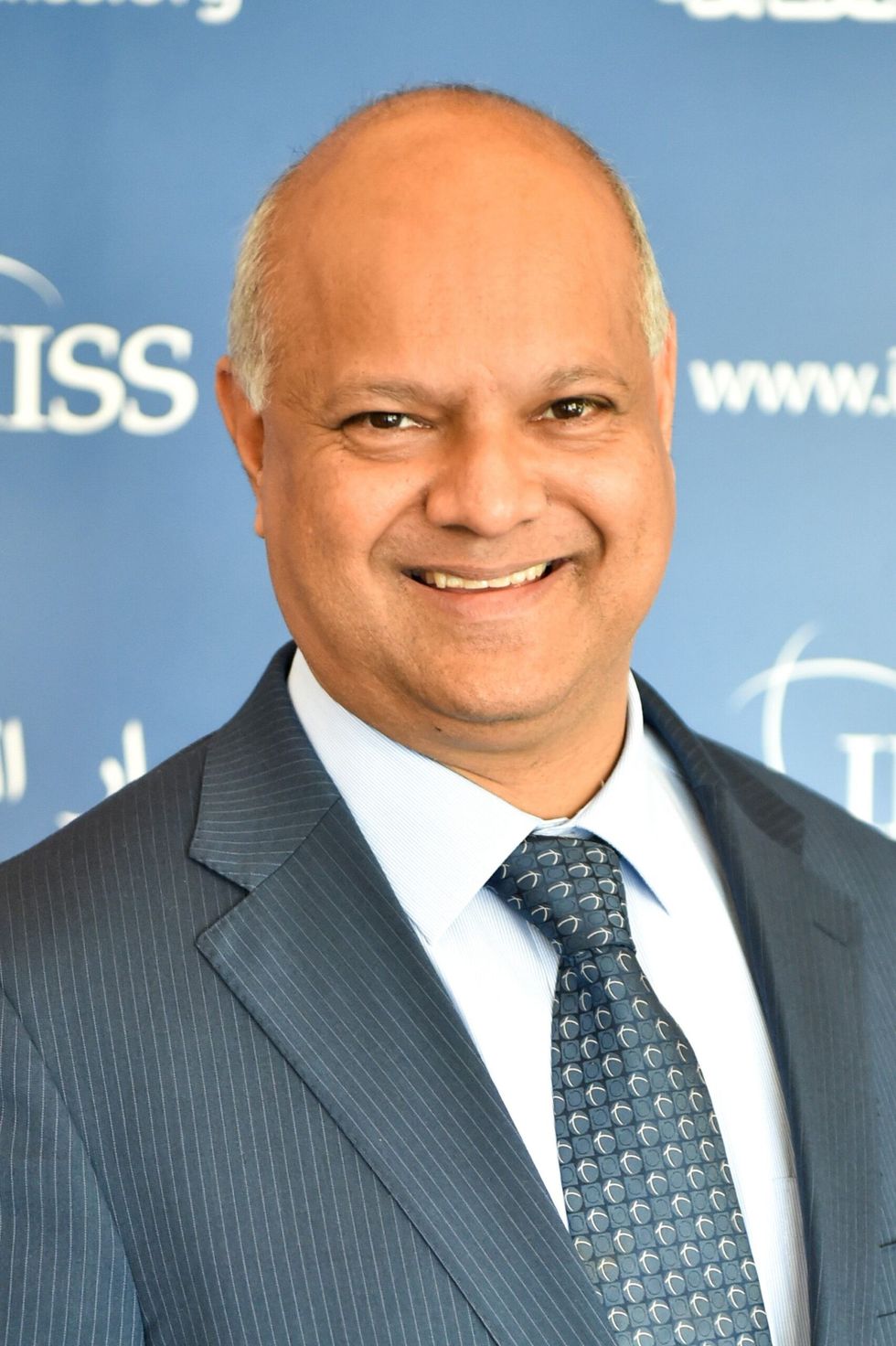AS INDIA hosts its third Global South Summit on Saturday (17), just two days after its annual independence day celebrations, it is increasingly clear that the global south is recognised as a key foreign policy priority.
But, the definition of what constitutes the global south varies. It is not a geographical entity although it is at times perceived as such. It essentially refers to a group of ‘low or middle income’ countries as defined by the World Bank, geographically located in both the northern and southern hemispheres. It is also based on the group of ‘developing countries’, formerly constituting the Group of 77 (now 134) in the UN General Assembly.
While India belongs to the global south, it equally, is a major global economy with a global profile on the world stage, set to become the third largest economy in the world by 2029.
It provides aid, food, fuel, fertiliser and infrastructure projects to 78 countries; and, during Covid, supplied vaccines to 99 countries.
India sees itself as an influential voice of the global south, acting as a ‘facilitator’ between the major economies of the world and the global south. In this endeavour, it has held its first dedicated global south summit meeting in January 2023, titled ‘Unity of Voice, Unity of Purpose’, followed by the second in November 2023 titled ‘Together, for Everyone’s Growth, with Everyone’s Trust’, bringing together 125 countries.
The third, to be held on Saturday will be virtual. At the G-20 summit in New Delhi in September 2023, India also ensured that the African Union became a permanent member of the G20. India has held India-Africa summits in the past.
This is based on India’s policy of ‘issue-based alignment’ or ‘multialignment’ for a multipolar world order. This is an attempt to build meaningful ties on specific issues with different partners, short of an alliance relationship. At the same time, India is a member of the Quad grouping with the US, Australia and Japan.
The Quad is not a security organisation, but a broad partnership focusing on non-security issues, focusing on cooperation over the coronavirus pandemic, vaccine production, emerging technologies, space, cyber security and 5G deployment and diversification.
India faces several challenges as a facilitator between the global south and the powerful Western world. The first is whether such a facilitatory role be successful?

In a highly uncertain world, with simultaneous raging conflicts in Europe and the Middle East, and challenges in the Far East, the world is becoming highly polarised, amid a shift from a unipolar to a multipolar world.
India’s policy of ‘multi-alignment’ and ‘strategic autonomy’ are challenged. But, India’s policy towards the Russia-Ukraine war, where it has ‘not condemned nor condoned’ Russia’s invasion of Ukraine while abstaining in UN Security Council resolutions (when it was a permanent member) against Russia has brought it dividends, especially when a large number of the countries of the ‘global south’ do not want to be forced to choose sides on ongoing conflicts.
Second, the challenge from China. India’s tense relations with China follows on from their brutal Galwan border clash in the high Himalayas in the summer of 2020.
Despite multiple rounds of border talks between the two, dis-engagement of their border forces has not been completed, nor deescalation taken place.
With a far larger economy and international profile than India, China also sees itself as a leader of the global south.
In this context, China has deeper pockets and a larger global profile than India. But, in view of the intensifying rivalry between China and the US, it will not be possible for China to play a ‘facilitatory role’ between the western members of the G20 and the global south.
Although India and China are members of several multilateral organisations such as BRICS and the SCO, there is no intent or interest in collaborating bilaterally with each other in relation to their policies towards the global south.

Third, with India being a member of the global south but also set to become the third largest economy in the world, there will be inherent policy contradictions between the two; the challenge will be how best India can overcome them to the satisfaction of the global south.
India has long aspired to become a member of an expanded UN Security Council in a role commiserate with its greater economic power and international profile and influence. But, this endeavour may clash with its facilitatory role in relation to the global south,
Even as India is a member of the global south, its intent, policy, actions and implementation of projects in 68 countries worldwide place it as one of its leaders.
Its role as a ‘facilitator’ between the global south and the powerful western powers of the G20 is unique. This can continue to be enhanced through increased developmental partnerships focusing on key issues of concern, including food, fuel, financial and countering climate change, all of which India is involved in.
Yet, India’s leadership of the global south will continue to be contested by China in view of the tense relations between the two Asian giants.
(The author is the senior fellow for South Asia, The International Institute for Strategic Studies (IISS), London)




‘India steers global south while eyeing larger goals’
Delhi juggles alliances as country seeks influence on world stage